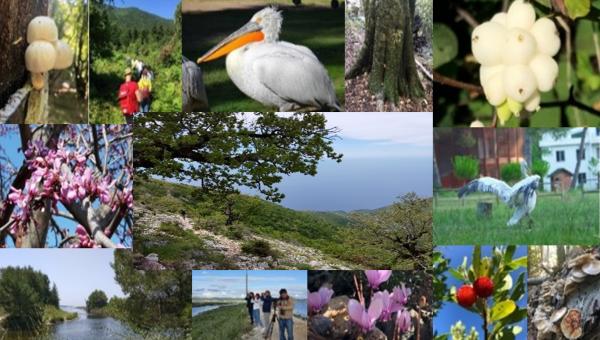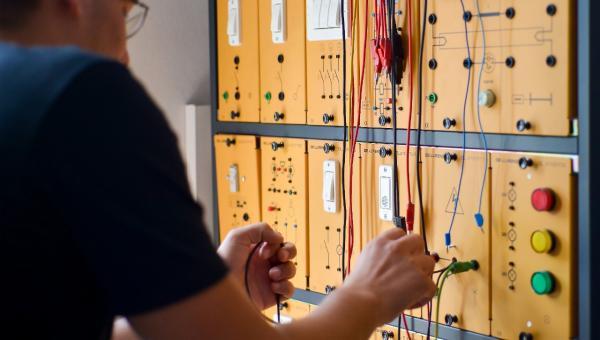UNDP Albania
Strengthening national and local systems to support the effective socio-economic integration of returnees in the Western Balkans
Summary
“Strengthening national and local systems to support the effective socio-economic integration of returnees in the Western Balkans” is part of the IPA II Multi-Country Action Programme entrusted to UNDP, the WB and the CoE, to support the fundamental rights of Roma community and other vulnerable returnees, in three countries of Western Balkans, namely in Albania, North Macedonia and Serbia.
The project is implemented to address the reintegration of the significant number of returnees from the EU during the last years, while the Western Balkans countries were declared “safe countries of origin”. In 2017, Albania, North Macedonia and Serbia were ranked among the top 20 countries with the highest number of nationals with unregulated residence status in the EU. Limited work opportunities, low-paid jobs, large informal sector and the poor quality of health and education services, among others, due to neglect and disinvestment in social infrastructure, are some of the main drivers of outward migration.
In this context, the project enhances the capabilities of the Western Balkan authorities to implement holistic solutions to economic and social empowerment of returnees. By tackling the root causes and negative drivers of migration of Roma and vulnerable populations, the project contributes to implementation of the broader social inclusion agenda in the Western Balkans.
The ultimate objective of the project is to translate the tested models into national regulation and public policies and programmes for sustainable reintegration of vulnerable returnees, while UNDP primarily addresses the local level challenges.
The project works closely with local level institutions responsible to provide services for the reintegration of returnees with a main focus to those from Roma and Egyptian ethnic minority, with local civil society actors and local business community. The community of returnees is considered both as beneficiary and partner during the implementation, aiming to create ownership of the actions foreseen to take, to the returnees themselves.
The project tackles a variety of key hindrances to reintegration, including but not limited to
- developed local social care plans (Berat, Fier and Devoll) in the benefit of reintegration of returnees;
- supported local government institutions to improve service provision and respond to the reintegration needs of the returnees by establishment of multi-stakeholder platforms and case management protocol;
- provided personalized support to more than 480 individual’s growth, reflective of individual’s education, skills, experience, preferences and professional aspirations by equipping returnees with a suite of soft, technical and digital skills to improve their employability in the formal labour market;
- supported 55 returnees with entrepreneurial potential to start their own business;
- supported the implementation of community cohesion programmes through small grants for local NGOs reaching over 1500 returnees to date;
- improved access to social and administrative services for over 250 returnees including by use of digital tools (E-Albania);
- strengthened capacities of NGOs and public service providers for effective provision of services including with the application of new digital tools.
Important noting is that based on the learning and knowledge assembled during the implementation, the project aims to promote the regional dialogue among policy makers and practitioners, on topics of significance for the sustainable reintegration of returnees, in order to provide a space for exchanging the views and experience between policy makers and policy practitioners.
In Albania, this project is being implemented in Municipalities of Fieri, Devolli and Berati.
Background
Irregular migration spreads across all demographics, however social and ethnic groups, Roma and Egyptian men and women comprise a significant share. The quantitative and qualitative surveys conducted by UNDP and the World Bank in 2017 underscore disproportional social and economic hardship as a main trigger of irregular migration and asylum application of Roma and Egyptian men and women, where Roma and Egyptian women are even more vulnerable.
While health, social and economic impact of COVID-19 crisis is still trickling down and affecting all segments of society, statistical evidence single out migrants among the hardest hit groups alongside informal and seasonal workers. Returnees often remain invisible for the social safety nets or Governments’ relief and recovery packages. Although various dimensions of migration and reintegration of returnees are being addressed in national strategic and policy frameworks, their implementation has suffered from the ineffective mechanisms for horizontal (inter-institutional) and vertical (central-local level) coordination, weak institutional capacities and scarce financial resources.
- Total country population of 2.4 million, Roma and Egyptians (R&E) account for 0,92% (22,188) . Unofficial estimates of R&E are much higher – approximately 120,000 or 4.8%.
- One of the highest migration and asylum-seeker rates in Europe. 27,535 enforced returns and 7,325 recorded voluntary returns to Albania from EU (2011 – 2019) on a cumulative basis. In 2021, 9,415 returns of Albanian citizens were reported.
- In 2021, the number of return decisions issued was 22,025. In 2021, there were 11,300 asylum applications lodged in EU Member States by citizens of Albania.
- Key reasons for returning are linked to inability to obtain legal papers in the country of emigration and unemployment.
- Majority of registered returnees belong to the lowest education level and the 30-44 years age group.
- No specific legislation on returnees’ registration and reintegration management. Set of services for returnees outlined in the Law on Emigration of Albanian Citizens for Employment Purposes.
Major achievements
- The UNDP has advanced the mobilization of local partnerships for the development and implementation of measures for sustainable reintegration of returnees as part of the EU-financed Sub-Regional Project "Strengthening national and local systems to support the effective socio-economic integration of returnees in the Western Balkans".
- Municipalities of Fier, Berat, and Devoll have established three local multi-stakeholders' platforms to address the challenges faced by returnees and vulnerable Roma upon their return. This comprehensive approach has led to concrete solutions, including removing institutional bottlenecks and identifying job opportunities for young unemployed women and men.
- Local platforms have developed a protocol for managing cases of Roma and Egyptian minorities returning from emigration and asylum, in line with Social Care Services law. This protocol standardizes actions for immediate, comprehensive, and responsible reintegration of these individuals.
- Local Roma and Egyptian returnee reintegration action plans have been developed in Devoll, Fier, and Berat to improve livelihoods, address governance issues, and address service provision gaps.
- In partnership with National Agency for Employment and Skills, local employment offices and the business community, the project is demonstrating new approaches to economic empowerment and social cohesion for returnees.
- UNDP launched a start-up competition to support economic empowerment and self-reliance among returnees. With 155 applications, 75 are supported through employability improvement plans and livelihood support. In partnership with Institute of Roma Culture in Albania (IRCA), 55 successful applicants received financial support of up to 500,000 Albanian Leke for their start-ups. The program aims to address gaps in business support services and access to networks, particularly among vulnerable returnees, Roma, and Egyptians, and increase entrepreneurship among vulnerable groups.
- With the advocacy and technical assistance of the project, municipalities like the one of Devoll, have approved a decision of the municipal council for the reduction of local taxes for new entrepreneurs, during the first two years of activity, as an initiative that will help businesses in the first steps.
- The project is implementing an “Integrated Employment model for (Roma and Egyptian) Returnees” in Municipality of Devoll, Berat and Fier. The focus of the partners (NGOs+ Employment Offices + Municipalities+ Businesses) is to empower the individuals and create the enabling environment so that the vulnerable returnees get involved successfully into integrated employment (including social care for the family).
- NGOs in Albania are profiling unemployed returnees, liaising with the National Agency for Skills and Employment and Local Labour Offices to register as active job seekers. This model adapts to different policy contexts and capacities.
- Nineteen (19) NGOs and civil society organizations are enhancing social cohesion in communities through business development, inclusive education, administrative support, healthcare access, digital skills recognition, and legal assistance.
- Roma and Egyptian women, returning from asylum or migration, are establishing a small-scale Natural Soap Making initiative, providing training, soap molds, and raw materials. Supported by local NGO Qendra T'Reja, the initiative uses a web-based page and negotiates with local businesses.
- 15 youngsters completed successfully a digital skills training in Devoll.
- Different social care services are provided in partnership by NGOs and municipalities aiming at improving the overall wellbeing and facilitating reintegration of returnees in local communities, reaching a number of 1500 women and men returnees.
- 55 Roma and Egyptian returned families in Fier are receiving assistance in acquiring agricultural land titles and cultivating their land as part of economic reintegration activities with EU Funds. Despite having some suitable land, the area is characterized by agricultural abandonment, high unemployment, and fragmented lands. NGOs "Together for the Integration of Roma Community" and "Institute of Roma Culture in Albania" are partnering with UNDP to support these families in acquiring land titles and cultivating land.
- Significant number of urgent administrative issues faced by returnees are addressed by identifying and developing innovative approaches to public service provision, by introducing integrated case management. Over 250 cases (50% women) have obtained free legal assistance with the support of the project. Some of the most important and representative cases and issues faced by returnees have been further elaborated and turned as model cases for policy change.
- To facilitate access to the governmental digital services (E-Albania portal) for the returned Roma and non-Roma families an initiative is being implemented in Fier: 120 Roma community members informed about how to access online services; 127 individuals directly assisted to access online services; 66 individuals provided with vouchers and assisted for the renewal of their ID cards.).
- During 2021-2024, the Ministry of Health and Social Protection (MHSP) implemented policies for Roma and Egyptian inclusion in Albania, following the approval of the National Action Plan. All line ministries, regional directorates, municipalities, and local institutions were trained on progress reporting in the ROMALB electronic system.
Project Outcome
Output 1 - Local returnee integration strategies are developed with selected municipalities foresees development of local reintegration strategies, aiming to improve the livelihoods and social wellbeing of returnees and the broader community, tackle local governance issues, capacity and institutional bottlenecks and gaps of service providers and business ecosystems, which hinder the effective implementation of reintegration policies.
Activity 1.1. Creation of multi-stakeholders’ platforms in 9 municipalities
Activity 1.2. Development of local strategies and innovative programs for the social and economic reintegration of returnees.
Output 2 - Elements of local returnee integration strategies are implemented in selected municipalities, including innovative activities on livelihoods and skills building, etc aims to demonstrate new approaches to economic empowerment and social cohesion, which will form the main pillars of local reintegration strategies.
Activity 2.1. Integrated support to improve employability of returnees.
Activity 2.2. Implement innovative programmes in supporting business start-ups and productive partnerships with local businesses.
Activity 2.3. Promoting social cohesion by organizing community-based programmes.
Activity 2.4. Regional dialogue among policy makers and practitioners in the area of sustainable reintegration of returnees.
Output 3 - Significant number of urgent administrative issues faced by returnees are addressed will seek to identify and develop innovative approaches to public service provision, by developing and utilising a number of digitalized tools and laying the ground for introducing integrated case management.
Activity 3.1. Improve access to social and administrative services by returnees including by use of digital tools.
Activity 3.2. Strengthen capacities of NGOs and public service providers for effective provision of services including with the application of new digital tools.
Related Materials
Impact
Explore other UNDP's projects in Albania

 Locations
Locations





